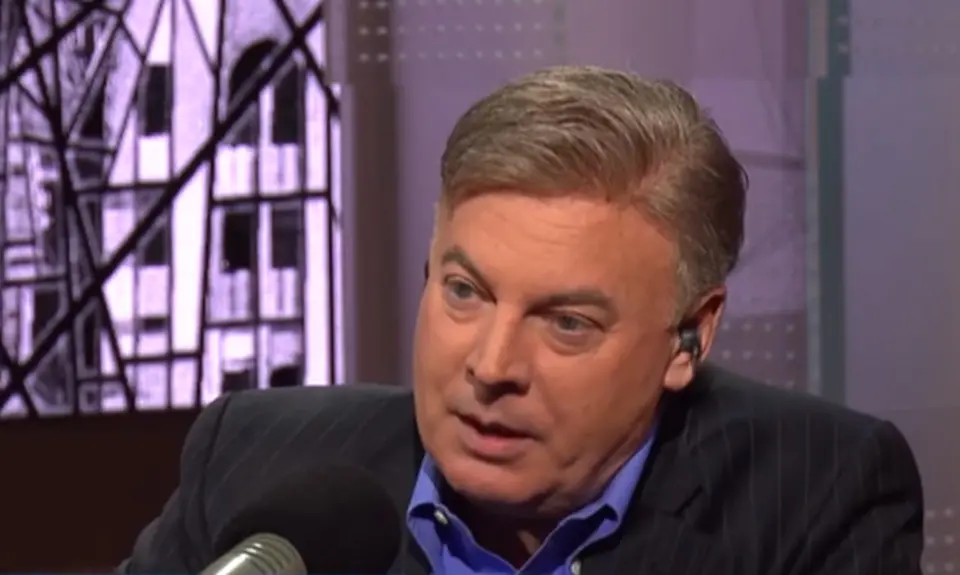Religious Right leaders and right-wing media operations moved quickly to exploit the devastating Easter Sunday bombings in Sri Lanka to advance a political message they hope will mobilize a high turnout among conservative white evangelical voters in 2020. It’s the same dishonest claim that Religious Right leaders hammered hard in 2016 in their efforts to defeat Hillary Clinton and elect Donald Trump: Democrats are enemies of faith, religious freedom and Christianity itself.
This week’s right-wing campaign focused on the wording that Barack Obama and Hillary Clinton used in tweets offering condolences and support to the victims of the attacks, in which suicide bombers associated with an Islamist group detonated explosives that killed more than 300 people at crowded churches and hotels. Obama and Clinton and some other Democrats described the church-goers as “Easter worshippers” in their tweets, but did not use the word “Christians." Referring to people worshipping in churches on Easter Sunday hardly seems like a way to camouflage their identity as Christians. But that didn’t stop right-wing activists from alleging that the Democrats’ wording is evidence of anti-Christian bigotry and a refusal to recognize that the bombings targeted Christians.
Right-wing pundit Erick Erickson called the online outrage storm a “silly controversy,” but he didn’t have much company. Watching the campaign spread through virtually every element of the right-wing media universe was a real-time opportunity to watch a propaganda campaign spread.
The theme was amplified by right-wing provocateur Big League Politics--Democrats “hostile toward Christians” want to “turn a once-Christian nation into a secular, postmodern wasteland”--and Russian propaganda site RT, both of which posted on Monday morning. Sarah Palin jumped in before noon, Laura Ingraham shortly after. Breitbart’s version was shared tens of thousands of times, as was Matt Walsh’s post at the Daily Wire, which said Democrats’ “victimhood narrative” would be “sent into disarray if Christians were admitted into the victim column.” Walsh also made the case on his show. Washington Times online opinion editor Cheryl Chumley called the Obama and Clinton tweets “anti-Christian.”
The campaign reached beyond the internet. Pastor Robert Jeffress, always prepared to give the Team Trump line, went on Charles Payne’s Fox Business show on Monday afternoon. Jeffress is one of Trump’s favored pastors, and is a regular White House visitor. During the Fox program, Payne’s questions were fixated on Democrats’ supposed refusal to acknowledge Christians as terror victims, which Jeffress agreed “exacerbate[s] the situation"; liberals, said Jeffress, view Christianity as a threat to the "liberal social agenda" and "absolutely will not acknowledge that there's a specific attack against Christians." At National Review on Wednesday morning, propagandist Dennis Prager kept the conversation going, declaring, “The Left won’t allow itself to acknowledge anti-Christian terrorism.”
Remember, this all began after high-profile Democrats proactively recognized the terror attacks on people gathered in churches on Easter Sunday.
The cynicism of this campaign cannot be overstated.
One could easily argue that the term “Easter worshippers” highlights, rather than downplays, the nature of the attack as one that targeted Christians. Easter, after all, celebrates the resurrection of Jesus Christ. It’s hard to take seriously the charge that emphasizing this aspect of the bombings reflects a refusal to acknowledge that Christians were the attackers’ targets.
Second, the right-wing outrage was highly selective and purely partisan. Tweets of sympathy from President Donald Trump, House GOP Leader Kevin McCarthy, Secretary of State Mike Pompeo, and U.S. Ambassador for International Religious Freedom Sam Brownback—a Religious Right favorite—also did not include the word “Christian.” Brownback offered prayers for “worshippers at Easter Sunday services.” Yet, as far as I know, no major right-wing media personalities suggested that their word choices reflected some kind of deep-seated desire to hide the very real and often deadly persecution that Christians face in many parts of the world.
Last year, at an event hosted by Georgetown University’s Institute for the Study of Diplomacy, former U.S. Ambassador for International Religious Freedom Rabbi David Saperstein said that the moral authority of the U.S. in advocating for religious freedom had been harmed by Donald Trump’s inflammatory rhetoric against Muslims and immigrants. Another former ambassador, Barbara Bodine, said that the rise of ethno-nationalism and nativism in the U.S. undercuts the government’s ability to effectively champion human rights overseas.
But right-wing leaders seeking to keep conservative white evangelical enthusiasm for Trump high are intent on portraying Democrats as either indifferent to Christian victims of persecution abroad or as perpetrators of anti-Christian “persecution” in the United States—which they have defined to include the requirement that Christian business owners comply with laws protecting LGBTQ Americans from discrimination.
For insight into the politics at work here, consider comments made last month by Lance Wallnau, a “prophetic” author and speaker who declared candidate Trump to be God’s anointed.
Wallnau said so many Christians voted for Trump because they were fearful of the “aggressive” and “belligerent” left. “Christians changed the course of history because they were traumatized,” he said, declaring himself “very excited by the degree of trauma that exists right now in the world where Christians are concerned, because if you can’t get Christians to be motivated for enlightened self-interest, they will be motivated out of fear.” (Wallnau’s fealty to the president has yielded him the reward of insider access to the White House.)
Indeed, during the 2016 campaign, Religious Right leaders who knew that many Christians had qualms about embracing the morally squalid Trump told people they had no choice, because the election of Hillary Clinton would mean the end of religious freedom for American Christians.
That kind of rhetoric poisons our political climate and hardens our divisions. But its apparent success in convincing evangelical voters to put Trump in the White House guarantees that we’re likely to see more of it, as we did this week, when the murdered Christians and tourists in Sri Lanka became fuel for the right-wing media machine.





